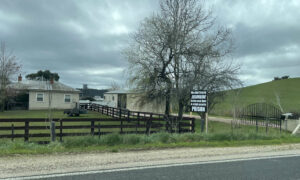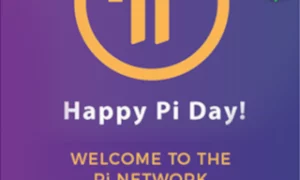…
Giddings says her mother’s world view had a greater influence on her than her father’s. However, the respectful manner in which both parents, now in their 70s, handled their differences had a lasting impact. She appears to be an amalgam of the two: a Tasmanian kiap, strong-willed, paternalistic and conservative in some ways, but imbued with her mother’s fire and depth of belief in the ALP.
Giddings’ budgeting skills can be traced to the latter years of school, spent as a boarder, with Sonya, at Melbourne’s Methodist Ladies’ College, while her parents remained in PNG. “Boarding school makes you independent at the age of 12,” Lara explains. “I had $100 a term, $300 over a whole year and out of that I had to pay for my toothpaste, my washing detergent, my shampoos and other incidentals.”
It was a Year 11 visit to Canberra that transformed a background interest in politics into a career path. Giddings joined the ALP as an 18-year-old and gravitated to the party’s Left, either working for or being mentored by some of its key operatives, including Tasmanian state MP Fran Bladel, former Victorian premier Joan Kirner and federal MP Duncan Kerr (it was Kerr who encouraged her to stand for parliament).
In 1996, at the age of 23, Giddings was elected to Tasmania’s lower house in the largely rural seat of Lyons, the youngest woman elected to an Australian parliament. It was a bittersweet moment when she lost the seat at the 1998 election because Labor was back in government after six years in opposition. Now out of a job, Giddings travelled and found work in the United Kingdom, including a stint as a research officer for MP Helen Eadie in the Scottish Parliament. After returning to Australia, Giddings successfully contested the southern electorate of Franklin at the 2002 state poll, a seat she holds to this day.
Within two years Giddings was minister of economic development and within four had the key but difficult portfolio of health and human services. She kept her nose clean as scandals plagued the cabinets of then premier Lennon and, to a lesser extent, his successor, Bartlett, under whom she became deputy premier and eventually treasurer. As health minister she reduced duplication between Tasmania’s network of hospitals, making the unpopular decision to close several in country towns, fronting angry crowds to personally defend the policy. In the midlands town of Ouse she was abused and had firecrackers thrown at her feet.
Not that she let any of this sway her. “When she gets an idea, believes in it and takes advice on it, then she digs her heels in and she sticks with it,” observes her father. “It would be very hard to overthrow [her stance].”
Which some see as a flaw. “Her weakness at the moment is that she’s not listening,” says a senior player in her Left faction, Unions Tasmania chief Kevin Harkins. “She probably sees a change in position as a sign of weakness, which it shouldn’t be. That’s no good.”
The latest opinion poll, published by Tasmanian pollster EMRS in late November last year, doesn’t look pretty. Labor’s support had declined 7 per cent in 12 months to just 23 per cent. Labor’s power-sharing partners, the Greens, who have two ministers in Giddings’ cabinet, were almost level with Labor on 20 per cent. The opposition Liberals, under Will Hodgman, are cruising towards majority government with 54 per cent. Giddings’ personal approval rating has fallen from 27 per cent in February, shortly after she became Premier, to just 19 per cent. That’s dangerously close to the 17 per cent that precipitated Lennon’s downfall in May 2008 and well below the 23 per cent that preceded Bartlett’s departure.
Giddings’ predicament draws inevitable comparisons with Kristina Keneally in NSW, Joan Kirner in Victoria, and Anna Bligh in Queensland: women pushed to the helm just as the ship of state steamed towards the rocky shores of electoral oblivion. When Bartlett quit in the wake of bad polling and a worsening budget situation, Giddings was deputy premier and treasurer. “I was the next obvious choice, so I don’t think it was a matter of ‘Let’s push a woman up and let’s allow a woman to cop it’,” she says. “It just happens to be that I am a woman and I have stepped up to the mark now. I have three years to be able to prove myself.”
While hopeful voters will reward tough economic management, she concedes they may be smarting too much from the budget cuts to consider the bigger picture. Labor insiders say the ALP is resigned to a historic loss. “It’s not going to look too pretty for them,” explains former premier Paul Lennon. “Experienced members of the caucus are fully aware that Labor’s chances … are quite low. Lara wants to make sure that Labor’s period in office, for however much longer it goes, is remembered for repairing and consolidating Tasmania’s economic outlook.”
Giddings argues that the right thing – bringing the budget under control – is therefore also the right thing in the party’s long-term interests. Even if it means a stint in opposition. Joan Kirner, who struggled with Victoria’s fiscal crisis as premier from 1990 to 1992, remains a Giddings mentor and friend. Both were founding members of Emily’s List in Australia (a support network for progressive Labor women candidates) and Kirner has kept in touch with “one of my favourites”. Kirner recently sent Giddings a text message saying: “You’re doing a good job!”
“If Tasmanians look at what they’ve got carefully, rather than just reacting to what they haven’t got, I think Lara has got the capacity to fight back,” Kirner says. However, even this card-carrying member of the Lara fan club has been concerned about the depth of cuts proposed at times. “I was delighted, for example, when Lara reversed the decision on closing [20] small schools,” she says. “I said to her before that Jeff Kennett nearly wrecked education by closing 300 schools and he never lived it down, so be very careful.” However, Kirner concedes the Greens may have been the force behind the backflip (Greens leader Nick McKim is education minister). And while school closures remain on the table, Kirner cautions her friend against relying too heavily on treasury advice. “Treasury doesn’t always know what’s happening out on the ground,” she says.
Some of the Premier’s Left faction colleagues accuse her of being overly influenced by treasury adviser Ross Smith and economics adviser Richard Dowling, complaining the trio seem “joined at the hip”. A former chief economist to the state’s peak employer body, Dowling, an ALP member, is one of the driest economists in town. “Richard Dowling has way too much influence,” argues unions boss Harkins. “To be honest, Lara might be a member of the Left but in some areas – in the area of finance – I don’t think she demonstrates a Left-leaning agenda. The current budget is a business agenda.”
The barb stings when I put it to Giddings. “I actually have a fair bit of self-respect and an understanding of my own abilities to listen to various quarters of advice – and to make up my own mind,” she snaps, suspending her trademark placidity. “So when the union movement or anyone else makes those sorts of comments, they are actually insulting me and my intelligence.”
Lennon believes there has been a shift in Giddings’ political outlook. “That’s driven in part by being in government – it does push you to the right of your position, having this wider, total responsibility, including economic development and business profitability,” he says. The former premier believes there is a “very low” risk of the PLP losing its nerve and dumping Giddings and her austerity program ahead of the election.
Harkins disagrees. “I know there are mutterings there already,” says the ambitious unionist. “Politicians, as they do, worry about getting re-elected. The cuts are unpopular and affect the ALP heartland. To be honest, if they don’t change tack, [Labor’s dramatic election loss in] NSW is going to look good.”
Harkins says the health cuts, in particular, are poison in Labor’s traditional strongholds, such as the northern suburbs of Hobart and parts of its eastern shore. “For the poor old punter who is out there struggling to pay his bills, for heating, rent and all the rest, and who doesn’t have an ability to pay for private health insurance, it is really, really scary,” he says. “They’re thinking, ‘If I get sick tomorrow, what happens?’
…
Read the full article in The Australian, HERE
Monday: Lara Giddings push to expand Tasmanian lower house
by: Matthew Denholm
From: The Australian
January 23, 2012 12:00AM
TASMANIA’S Labor-Greens government is planning to increase the size of state parliament before the next election, expanding the lower house from 25 to 35 members.
The move, foreshadowed to The Australian by Premier Lara Giddings, will bring comfort to sitting government MPs – facing a likely rout at the 2014 election – by reducing the quota of votes they need to hold their seats.
Tasmania’s lower house uses the Hare-Clark quota-preferential voting system and five MPs are elected for each of the five electorates, with 16.7 per cent of the vote needed to win each seat.
By increasing the number of MPs elected within each electorate from five to seven, and therefore the size of the House of Assembly from 25 to 35 MPs, that quota would be cut to 12.5 per cent.
This would help sitting Labor and Greens MPs facing what is expected to be a hostile electorate, with Labor support plummeting in the face of deeply unpopular budget austerity measures.
However, increasing the assembly to 35 MPs would cost an estimated $3 million a year and further antagonise the electorate.
The opposition Liberals, already high in the polls, support a larger parliament but say any rise in numbers should wait until the state’s finances have improved.
Ms Giddings told The Australian that she would move to increase the size of the assembly as soon as the budget was “heading back to surplus”.
She expected this to be ahead of the next election, due in March 2014. “My hope with the (budget) plan that we have in place (is that) we will see the budget start its road to recovery (by 2014),” she said.
• Economy report a bleak read
SALLY GLAETZER, Mercury | January 23, 2012 12.01am
POPULATION growth in Tasmania among people of working age is the lowest in a decade and housing construction has halved since the 1990s.
Those sobering statistics are included in the latest Access Economics Business Outlook report, which predicts Tasmanians will have to wait at least until the end of the year before things start looking up.
“There has been little or no job growth for 1 1/2 years and job vacancies have dropped by a third across the same period, suggesting that there’s little immediate joy ahead in 2012,” the report said.
Tasmania’s forestry industry is struggling despite strong woodchip demand from China and Access Economics experts say that is because countries like Vietnam and Thailand have a cost advantage because of fewer environmental restrictions and the high Australian dollar.
“To top all this off, the Tasmanian tourism sector is struggling Aussies are going overseas rather than over Bass Strait, leaving hotel occupancy rates falling at a time when they have been rising nationally,” the outlook report stated.
Not all the news was bad, with both Access Economics and Comsec’s latest State of the State report pointing to increased investment by businesses in Tasmania.
Access Economics also predicted the Australian dollar would “not stay stratospheric beyond 2012”, and the state would experience 3000 new jobs by 2012-13.
“We don’t see champagne corks popping this year, but the slowdown is only temporary not permanent,” the report concluded.
Premier Lara Giddings acknowledged the economic challenges but said the outlook for the future was positive.
• Tim Morris: Restore MP numbers
RESTORE MP NUMBERS = RESTORING EFFECTIVE DEMOCRACY
Tim Morris MP
Acting Greens Leader
The Tasmanian Greens today said that it is in tough economic times that Tasmania needs a Parliament with a strong talent pool to make good decisions, which is an argument in favour of restoring the size of the House of Assembly to 35 members.
Acting Greens Leader Tim Morris MP said he was concerned the Liberals were exploiting community misunderstanding over the timing of the proposed reforms for their own political purpose, rather than forming a good public policy position based on intellectual rigour.
“Short-changing Tasmania’s democracy is proven to be false economy,” Mr Morris said.
“It is now broadly recognised that the Labor and Liberal parties colluded in 1998 to cut the numbers for their own perceived political gain, resulting in a broken House of Assembly which is not working efficiently or effectively for Tasmanians.”
“We also need to learn from today’s lessons which demonstrate that it is in tough economic times in particular that Tasmania needs a parliament with a talent pool deep enough to make good decisions.”
“Since 1998 it has become clear that the cuts have impacted negatively upon workloads and quality of decision making by Cabinet, back-benchers and the Parliamentary Committee system.”
“Tasmanians deserve a workable and functioning Parliament that can make good decisions and hold a government to account, especially during tough economic times.”
“The Greens stand by our commitment that in the interest of serving Tasmania, we cannot afford to not fix this gross mistake.”
“The responsible course of action for both Labor and Liberal parties is to honour their commitment to fix it.’
“Instead it now appears that Will Hodgman is continuing to feed misunderstandings that legislation to restore the numbers would not come into effect until the next state election, for his own political purposes.”
“The 2010 tripartite Leaders’ Agreement made it clear that the restored numbers would not come into effect until the next state election, and the passage of legislation in the interim will deliver on a commitment and guarantee that the admitted mistake has been fixed.”
Mr Morris also said the Review conducted by Emeritus Professor Peter Boyce, released last year, found that the overwhelming majority of submission to the review favoured a restoration of the House of Assembly numbers back to its pre-1998 cut of 35 members.
Download, Copy of the MPs Numbers Agreement signed by the Three Party Leaders, 2 September 2010:
Jan23_MPs_Nos_Leaders_Agreement_2010_T_Morris_ATTACH.pdf
• Wednesday: Peter Chapman President of the Tasmanian Constitution Society Inc, Jane Diprose Secretary:
We write in response to the article in the Mercury, 24th January 2012, headed “Labor plan to expand parliament” and point out,
1. The proposal to restore the House of Assembly to 35 seats is not an expansion but a restoration of the House to the same size it was in 1998.
2. Whilst the presumed ‘cost’ (see below) of such a restoration might be seen as inappropriate at a time of cuts in various sectors, it must be remembered that the cut to the numbers of the House of Assembly was in itself the first damaging cut preceding the later controversial cuts, and therefore its restoration is an essential prelude to the broader restoration of the social economy. Only with an effective restored parliament can true, informed economic reform be achieved.
3. It should also be noted that the preparation and passing of legislation to restore the House of Assembly will not in itself incur ‘cost’; this will only occur (insofar as it is a cost) at the time of the next election in perhaps two years time.
4. After the next election there will of course be an expense but this should not be regarded as an inappropriate ‘cost’ any more than the regular maintenance of public buildings and other essential features of the state’s infrastructure be regarded as an unreasonable ‘cost’. The restoration of the House of Assembly would be the necessary repair of the very fabric of the political culture of Tasmania. The legislation to achieve this should be pursued forthwith to prevent further decay.
We look forward to Tasmanian politicians with statesman like vision to achieve this.


























seeker
January 22, 2012 at 10:56
“As health minister she reduced duplication between Tasmania’s network of hospitals”
…and now she is presiding over the biggest duplication of facilities ever in health: the three health organisations. This will destroy health in Tasmania, and Lara seems incapable of accepting the advice she is given about this.
The outline above demonstrates why Lara is so out of touch with reality. She has spent her life shielded from it, and now is incapable of empathising with the electorate. Since the decisions she makes have no impact on her, she cannot see the effect they have on the electorate. Any “empathic” statements you hear from her are just what she is told to say by the spin doctors. They do not come from her, but rather from others through her.
John lawrence Ward
January 22, 2012 at 14:08
# Seeker,
And, her “Intelligence”, which appears to be a separate entity.
john hayward
January 22, 2012 at 18:02
The other title for Denholm’s article was “tough love”.
This sort of love is presently being doled out by Lara out to non-Tas Inc mugs. Her corporate mates get their very luxurious love via public money stewards such as Lara and her predecessors.
In her farewell column, Sue Neales warned of the journalistic danger of becoming desensitised to the omnipresent Tasmanian corruption. Denholm has provided an example.
John Hayward
John Biggs
January 22, 2012 at 22:20
Denholm in praising her toughness (obstinacy?) in trying to produce a budget that will bring us out of the mire has left out her profligacy in donating huge sums to all those boy-toys: football, cricket, V8 car racing, and the doozy of them all, hundred of thousands of $$ to a failing industry that is making loss after loss, year after year: forestry. We could have a sustainable forestry industry as Frank Strie and others have been describing on the pages many times, but not by propping up the failing Forestry Tasmania and its outdated and rigid adherence to a failing paradigm. All that money down the drain! So how can Giddings possibly claim to be a tough budgeteer? She has been hobbled by the hard men in the Labor Party. So Matthew, why didn’t you put this side of Lara? You should know, you have previously written about tis side of Tas politics before.
Greg James
January 22, 2012 at 22:54
This is an amazing piece, it highlights Lara’s only real qualification are accidents (like Bryan Greens judicial accident or Bartlett an accident that happened) and membership of a political party.
This is the person who deliberately contrived to waste money on investigating a new hospital on the waterfront. This politician who has a highly developed sense of survival within her own ranks is pro-Federal Hotels as opposed to the poor of Glenorchy. This leader trashes her own party members, ignores their policies and probably hopes that history will deal with her kindly.
Watch Lara introduce legislation to expand the Parliament to 35 as it is the only way she and the other current ALP members will be re-elected.
Simon Warriner
January 22, 2012 at 22:59
And she has the polka dot princess as a a mentor? Anyone wondering why we stumble from chaos to corruption and back again need look no further.
Further thoughts on this matter censored to prevent irritating the moderators.
Justa Bloke
January 25, 2012 at 00:55
Forty per cent. Never forget. Increase the numbers to 35, as long as the members take a 40% pay cut. That was the deal when the numbers were cut.
Ness McCulloch
January 25, 2012 at 20:07
This article stinks. Did the ALP pay Matt Denholm to write this dribble? Certainly seems like it. Why not come and report what the electorate really think of Lara Giddings. An electroate that is not so dumb they don’t realise she is only interested in going back to 35 to save her own neck. If she dosen’t, Labor will likely on win 1 seat in Franklin and David O’Byrne will definately have to challange for her leadership to stay alive himself. Let them go the election under the 25 seat system they instituted and have defended until now, when their necks are well and truly in the noose.
John Grainger
January 25, 2012 at 20:18
Seems to have glossed over anything less than favourable. What about the fact that Lara is a 2 time election looser. She lost her seat in Lyons (for failing to provide adequate representation) and failed to win a seat in the Upper House in 1999. And what about the fact that when she was out of work, the Labor Party kept here in work with “special mates” positions in Labor Offices. She worked for Senator Sue Mackay, Senator Kerry O’Brien (twice), Fran Bladel and others – never did she attend an interview before being given these jobs – why not, aren’t they taxpayer funded? As far as keeping her “nose clean” … Only difference between Lara and the others is that she hasn’t been caught out yet.
phill Parsons
January 26, 2012 at 08:42
#10 should also take into account the other elected representatives to measure effective performance. And of course there is a minimum for effectiveness.
Tasmanian adopted several tiers of representation and governance but it is not the only possible effective model for 500,000 people in a connected age. Instead we persist with the inherited colonial model without considering the other possibilities.
I have nothing against local government per se but a single level of government in a unicamarel parliament would seem to em to be better at representing and governing in the interests of the whole.
mike seabrook
January 26, 2012 at 11:19
how much is the cost of political representation for tasmanian residents per head of population
what are the costs per head of population in vic, nsw & sa.
to make their ways in this world people should be fully informed & accountable for their actions.
Justa Bloke
January 26, 2012 at 21:42
Tin Tin (#11), name for me one state politician, here or on the mainland, who is worth more than the mean income of his or her constituents.